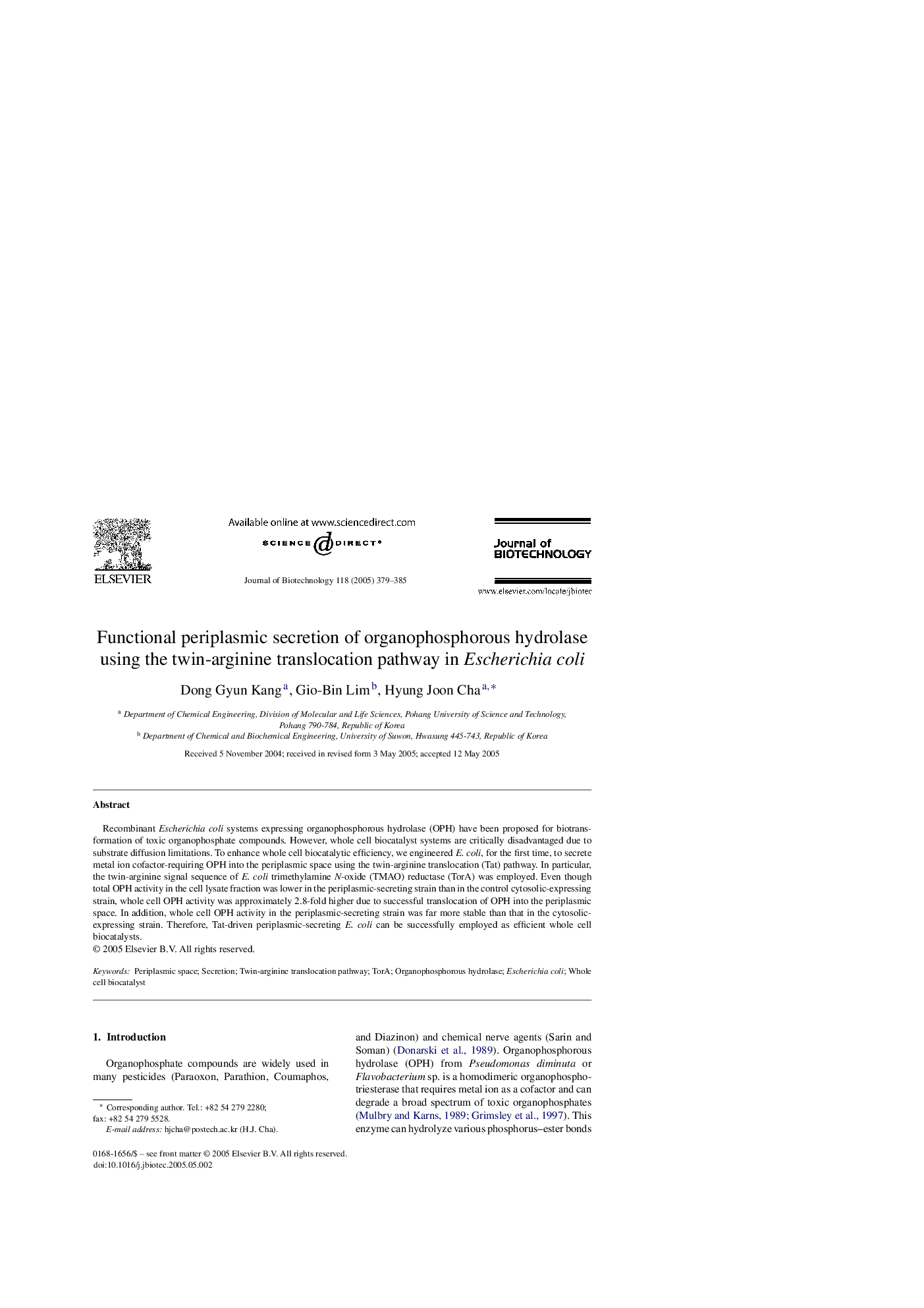| Article ID | Journal | Published Year | Pages | File Type |
|---|---|---|---|---|
| 9604317 | Journal of Biotechnology | 2005 | 7 Pages |
Abstract
Recombinant Escherichia coli systems expressing organophosphorous hydrolase (OPH) have been proposed for biotransformation of toxic organophosphate compounds. However, whole cell biocatalyst systems are critically disadvantaged due to substrate diffusion limitations. To enhance whole cell biocatalytic efficiency, we engineered E. coli, for the first time, to secrete metal ion cofactor-requiring OPH into the periplasmic space using the twin-arginine translocation (Tat) pathway. In particular, the twin-arginine signal sequence of E. coli trimethylamine N-oxide (TMAO) reductase (TorA) was employed. Even though total OPH activity in the cell lysate fraction was lower in the periplasmic-secreting strain than in the control cytosolic-expressing strain, whole cell OPH activity was approximately 2.8-fold higher due to successful translocation of OPH into the periplasmic space. In addition, whole cell OPH activity in the periplasmic-secreting strain was far more stable than that in the cytosolic-expressing strain. Therefore, Tat-driven periplasmic-secreting E. coli can be successfully employed as efficient whole cell biocatalysts.
Keywords
Related Topics
Physical Sciences and Engineering
Chemical Engineering
Bioengineering
Authors
Dong Gyun Kang, Gio-Bin Lim, Hyung Joon Cha,
